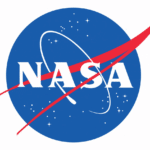Job Description
- Execute the technical authority for the Chief Engineers Office and projects per agency procedures to ensure that all technical and safety concerns related to the systems are adequately addressed within the accepted mission type.
- Provide engineering support to all aspects of the project or program which could include, but is not limited to formulation, design, fabrication, integration, test, flight hardware delivery, launch and operations as appropriate.
- Partner with the project managers, principal investigators, and lead systems engineers to layout work scope, perform planning, and mature the products through the entire lifecycle.
- Lead the technical team conducting work or performing insight on products per the applicable NASA institutional requirements, guidance, and best practices.
- Evaluate efforts, assess technical progress in relation to the established schedule/resources allotted and make adjustments as necessary.
- Assist in the production and review of products, resolutions of issues, layouts of schedule, and serve as a member on management and/or decision-making boards (e.g., Material Review Boards, change boards, etc..) as appropriate.
- Provide work package recommendations to the project based on project needs and will be directly responsible for working with project, engineering, and SMA management to set expectations and deliverables, and product scope.
- Review/concur on program/project planning documents at appropriate phases to ensure proper adherence to NASA institutional requirements, guidance, and best practices.
- Foster a culture of engagement, diversity, inclusiveness, excellence and innovation. Champion NASA’s commitment to Diversity, Equity, Inclusion and Accessibility to create an environment that promotes a commitment to safety, integrity, and teamwork.
Requirements
Conditions of Employment
- Current Federal employees must meet qualifications, time in grade, and 90 days after competitive appointment requirements by the closing date of the announcement.
- Financial Disclosure, Drug Testing, Bargaining Unit and/or the Travel Requirements for this position may differ and be required based on the duty location/Directorate/Division/Branch requirements.
- If the individual selected is currently at the GS-15 grade level, they will be detailed at their current grade and step. If the individual is a current GS-14 they will be temporarily promoted to the GS-15 level.
- Position subject to pre-employment background investigation or higher level clearance. Investigation/Clearance may differ and be required based on the duty location/Directorate/Division/Branch requirements.
Qualifications
In addition to the Basic Education Requirement (in the Education section below), to qualify for this position you must meet the requirements below and have one year of specialized experience equivalent to the next lower grade, which has equipped you with the particular competencies needed to successfully perform the duties of the position described above.
NASA utilizes OPM-approved qualification and rating requirements specific for Aerospace Technology (AST) positions which recognizes NASA’s unique aerospace work. The specific qualifications and minimum education requirements are further described below and within the education section of the job announcement.
To qualify for GS-15, you must have one year of directly related specialized experience equivalent to the GS-14 level:
- Leading the development, test or evaluation of spacecraft or launch vehicles or support systems;
- Performing traditional engineering science disciplines (e.g., mechanical, electrical, materials, industrial, and chemical) or the physical science disciplines (e.g., physics, chemistry, and materials), or computer science, or advanced mathematics including statistics and probability;
- Balancing cost, risk, schedule, and technical aspects when providing recommendations.
Your resume must include a clear and detailed narrative description, in your own words, of how you meet the required specialized experience. Experience statements copied from a position description, vacancy announcement or other reference material constitutes plagiarism and may result in disqualification and losing consideration for the job. NASA prohibits the use of artificial intelligence (AI) or AI-assisted tool in drafting application and assessment responses. Please visit
to review NASA’s guidance on the use of AI tools during the application process.
Education
Basic Education Requirement: You must have successfully completed a bachelor’s degree with a major in one of the following:
a) Engineering from a college or university that has ABET accredited engineering programs
b) Physical Science, Mathematics, Life Science or other field of Science
c) Computer Science that included 30 semester hours or 45 quarter hours of course work in any combination of mathematics, statistics and computer science with at least half of those hours in mathematics and statistics courses that included differential and integral calculus; and that provided an in-depth knowledge of theoretical and practical applications of computer science, including digital computer system architecture and system software organization, the representation and transformation of information structures, and the theoretical models for such representations and transformations.
If you did not complete a qualifying bachelor’s degree, you may be eligible if you have obtained a graduate degree in an AST qualifying field, as listed above.
Degrees in engineering technology are not considered qualifying for this position.
Engineering degrees earned within the United States: Engineering degrees earned within the United States must be from a college or university that has at least one ABET accredited engineering program. To find out if a school has at least one ABET accredited program, please visit
Engineering degrees earned outside the United States: Engineering degrees earned outside the United States must be recognized by a Mutual Recognition Agreement (MRA), often known as accords. These are non-governmental agreements among organizations that accredit academic degree programs. MRAs recognize the substantial equivalence of mature accreditation systems and programs accredited by signatory organizations within their jurisdictions. For a listing of Signatories, please visit,
/>
Science and other related degrees earned within the United States: Science and other related degrees must have been awarded from colleges or universities that are accredited by recognized accrediting organizations. For a list of schools that meet this criteria, go to
/>
Science and other related degrees earned outside the United States: If you are using education completed in foreign colleges or universities to meet the qualification requirements, you must show that the education credentials have been evaluated by a private organization that specializes in interpretation of foreign education programs. These education credentials must be deemed equivalent to that gained in an accredited U.S. education program; or full credit has been given for the courses at a U.S. accredited college or university. For further information, visit:
/>
All degrees must have been received in the year of, or any year subsequent to the original date of accreditation.
Additional information
Additional selections may be made for similar positions across NASA within the local commuting area(s) of the location(s) identified in this announcement. By applying, you agree to have your application shared with interested selecting official(s) within NASA. CTAP/ICTAP will be cleared for any additional selection from this announcement.
APPOINTMENT TO THIS POSITION IS TEMPORARY, NOT-TO-EXCEED ONE (1) YEAR. This assignment may be terminated, extended, or made permanent without further competition. If the assignment is not made permanent, the individual selected will be returned to the same or similar position from which they were promoted/detailed/temporarily reassigned.
If you are a current federal employee, you must meet applicable time-in-grade requirements to be considered eligible for this position. To be eligible, you must have completed a minimum of 52 weeks in a position no more than 1 grade lower than the advertised position. (Please submit your SF-50 that shows Time-in-Grade eligibility and reflects your title, series, and grade. If your eligibility for both merit promotion and/or time-in-grade cannot be determined, your application will be rated ineligible).
Note: Time-in-grade requirements also apply to applicants who have held a non-temporary, competitive service GS position in the past year.
If you have special priority selection rights under the Agency Career Transition Assistance Program (CTAP) or the Interagency Career Transition Assistance Program (ICTAP), you must:
– Indicate your eligibility when applying for a position. The questionnaire asks you to identify your ICTAP/CTAP eligibility.
– Be well qualified for this position to receive consideration. Candidates rated in the ‘Best Qualified’ category are considered well-qualified. Please see ‘How You Will Be Evaluated’ for more information.
– Submit proof that you meet the requirements for CTAP/ICTAP as indicated in ‘Required Documents’
For additional information about CTAP/ICTAP eligibility, click here –
/>
Qualified NASA term employees who have term conversion eligibility (Term Appointments | NASA) under the NASA Flexibility Act of 2004 will be referred and considered equally with other NASA permanent employees under internal competitive placement procedures.
Depending on position assignment, position may or may not be in a bargaining unit. To learn more about bargaining units at NASA please click here NASA Unions (Bargaining Units) | NASA.
Read more
- Benefits
Help
A career with the U.S. government provides employees with a comprehensive benefits package. As a federal employee, you and your family will have access to a range of benefits that are designed to make your federal career very rewarding. Opens in a new windowLearn more about federal benefits.
Review our benefits
Eligibility for benefits depends on the type of position you hold and whether your position is full-time, part-time or intermittent. Contact the hiring agency for more information on the specific benefits offered.
How You Will Be Evaluated
You will be evaluated for this job based on how well you meet the qualifications above.
You will be evaluated for this position based on how well you meet the qualifications and eligibility requirements listed in this vacancy announcement. To determine your qualifications and referral status, we may review your resume and supporting documentation and compare it against your responses to the vacancy questionnaire. Overstating your qualifications and/or experience in your application materials or application questionnaire may result in your removal from consideration.
You will be assessed on the following competencies:
- Design and Development Engineering
- Technical Competence
- Flight Systems
- Aerospace Engineering
- Written Communication
- Problem Solving
- Planning and Evaluating
NASA considers paid and unpaid experience, including volunteer work done through National Service programs (e.g., Peace Corps, AmeriCorps) and other organizations (e.g., professional; philanthropic; religious; spiritual; community, student, social). Volunteer work helps build critical competencies, knowledge, and skills and can provide valuable training and experience that translates directly to paid employment. You will receive credit for all qualifying experience, including volunteer experience.
Under NASA’s quality grouping process, applicants will be assessed on the position competencies and placed in one of three groups identified and defined below:
- Best Qualified Group – Applicants who demonstrate a superior level of all evaluation criteria.
- Highly Qualified Group – Applicants who demonstrate a satisfactory level of the evaluation criteria.
- Qualified Group – Applicants who demonstrate the basic qualifications, with general knowledge, skills, and abilities.
Candidates eligible for ICTAP/CTAP, reemployment priority or priority consideration will be referred before other candidates, as necessary. If no such candidates apply or are eligible to be referred, the following candidates will be sent to the hiring official for employment consideration:
- Best Qualified merit promotion candidates. Highly Qualified merit promotion candidates may also be referred, if additional candidates are needed.
- Qualified candidates eligible for consideration under Schedule A or VRA in accordance with veterans’ preference rules, as applicable.
- Qualified candidates that are eligible for special hiring authorities or non-competitive hiring authorities.
NASA will not ask you to disclose criminal history record information during the application process or before we make a conditional/tentative offer of employment. If you apply for this position and are selected, NASA will conduct a suitability/security background investigation after you accept a tentative job offer. If you feel you are asked to disclose your criminal history before you accept a tentative offer and wish to file a complaint within 30 days, please contact:
.
Recommended Skills
- Aerospace Industries
- Artificial Intelligence
- Biology
- Communication
- Decision Making
- Education





